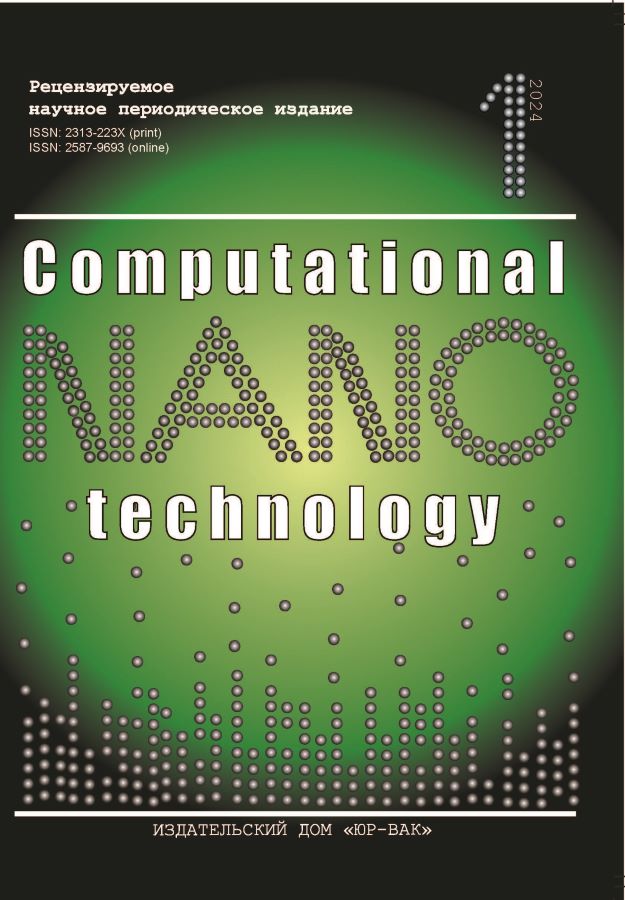Математическая модель экономической информации
- Авторы: Шамин Р.В.1, Грошева П.Ю.1, Голованов С.О.1
-
Учреждения:
- МИРЭА – Российский технологический университет
- Выпуск: Том 11, № 1 (2024)
- Страницы: 48-56
- Раздел: МАТЕМАТИЧЕСКОЕ МОДЕЛИРОВАНИЕ, ЧИСЛЕННЫЕ МЕТОДЫ И КОМПЛЕКСЫ ПРОГРАММ
- URL: https://journals.eco-vector.com/2313-223X/article/view/631142
- DOI: https://doi.org/10.33693/2313-223X-2024-11-1-48-56
- ID: 631142
Цитировать
Полный текст
Аннотация
В настоящей статье показано, что экономическая информация может быть формально описана с помощью информационного поля, которое представляет собой топологическое пространство с введенной системой подмножеств, замкнутой относительно операции объединения. Эта система подмножеств состоит из информационных квантов – множеств информации, которые могут быть использованы субъектом при принятии экономических решений. На этом информационном поле вводится функция множеств, заданная на информационных квантах, которая имеет смысл экономической ценности информационного кванта при решении субъектом экономической задачи. Многие экономические проблемы могут быть описаны оптимизационными задачами, когда субъекту необходимо сделать определенный выбор из множества допустимых решений, и теоретико-игровыми моделями, когда необходимо выбрать наилучшую стратегию в условиях противодействия других субъектов. Для этих моделей показано, как можно построить функцию для оценки экономической полезности квантов информации.
Полный текст
Об авторах
Роман Вячеславович Шамин
МИРЭА – Российский технологический университет
Автор, ответственный за переписку.
Email: shamin@mirea.ru
ORCID iD: 0000-0002-3198-7501
доктор физико-математических наук, профессор, кафедра индустриального программирования, Институт перспективных технологий и индустриального программирования
Россия, МоскваПолина Юрьевна Грошева
МИРЭА – Российский технологический университет
Email: grosheva@mirea.ru
ORCID iD: 0000-0001-7546-6903
кандидат экономических наук, доцент, кафедра индустриального программирования, Институт перспективных технологий и индустриального программирования
Россия, МоскваСтанислав Олегович Голованов
МИРЭА – Российский технологический университет
Email: golovanov@mirea.ru
аспирант, кафедра индустриального программирования, Институт перспективных технологий и индустриального программирования
Россия, МоскваСписок литературы
- Brouty X., Garcin M. Fractal properties, information theory, and market efficiency // Chaos, Solitons & Fractals. 2024. Vol. 180. No. art. 114543. doi: 10.1016/j.chaos.2024.114543.
- Friedland G. Information theory. 2023. doi: 10.1007/978-3-031-39477-5_4.
- Harris Z. Theory of language and information: A mathematical approach. 2023. doi: 10.1093/oso/9780198242246.001.0001.
- Krugly A. The relational approach to the mathematical model of meaning of information // Metaphysics. 2021. Pp. 70–91. doi: 10.22363/2224-7580-2021-3-70-91.
- Lindgren K. Information theory for complex systems: An information perspective on complexity in dynamical systems and statistical mechanics. 2024. doi: 10.1007/978-3-662-68214-2.
- Manca V., Bonnici V. Information theory. 2023. doi: 10.1007/978-3-031-44501-9_3.
- Shamin R.V., Uryngaliyeva A.A., Shermadini M.V., Filippov P.G. The model of evolutionary optimization of production processes at advanced technological enterprises // Espacios. 2019. Vol. 40. No. 20. P. 26.
- Данько Е.В., Оскорбин Н.М. Исследование ожидаемой полезности дополнительной информации при использовании функции субъективной полезности // Труды семинара по геометрии и математическому моделированию. 2020. № 6. С. 48–51.
- Куготова М.Н. Дискретная математическая модель распространения информации // Актуальные проблемы прикладной математики и физики: материалы международной научной конференции. 2017. С. 114.
- Нейман Дж. фон, Моргенштерн О. Теория игр и экономическое поведение. М.: Наука, 1970.
- Тимофеев С.В. Математическая модель распространения новой информации в обществе // Вопросы теории и практики журналистики. 2020. Т. 9. № 1. С. 5–17.
- Халиков М.А., Лях Д.А., Дерябина А.И. Модель оценки стоимости информации о налоговом аудите // Вестник Алтайской академии экономики и права. 2020. № 4-1. С. 141–148.
- Хартли Р.В.Л. Передача информации. // Теория информации и ее приложения. M.:Физматгиз, 1959.
- Шамин Р.В., Шмелева А.Г., Шермадини М.В. и др. Количественная оценка эффективности инноваций // Труды НГТУ им. Р.Е. Алексеева. 2019. № 1 (124). С. 61–66.
- Шеннон К. Работы по теории информации и кибернетике. М.: Изд-во иностранной литературы, 1963.
Дополнительные файлы









